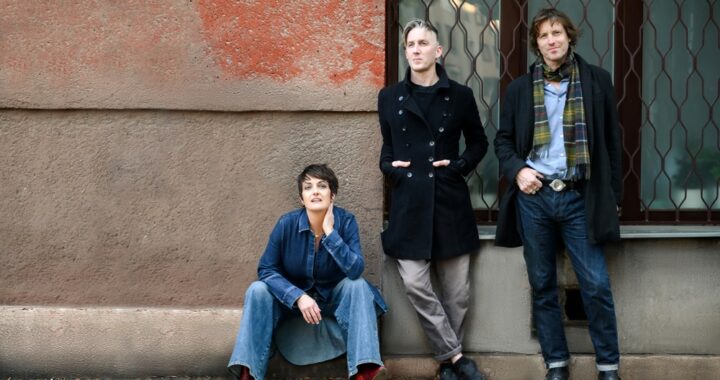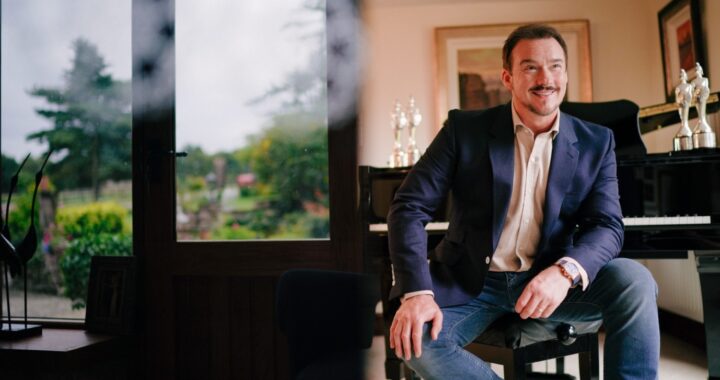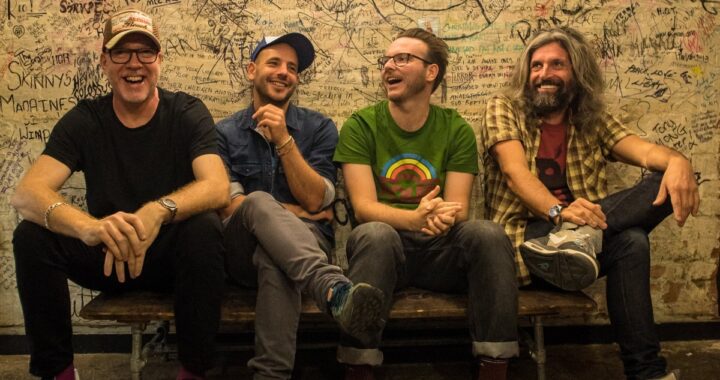Interview: Avalanche City
6 min read
Dave Baxter has spent the last four years carving out his own private niche in the music industry. With grace, sincerity and dedication, Baxter has risen from his indie roots to become a genuine sonic phenomenon. Under the name Avalanche City he has turned in two full length studio albums: 2011’s Our New Life Above Ground, which spawned the bona fide hit Love, Love, Love, and this year’s We Are For The Wild Places, a heartbreakingly beautiful record that was produced with the assistance of Chris Walla of Death Cab For Cutie Fame.
Baxter’s music is characterised by a mix of quiet sincerity and bold, dramatic ideas. He never shies away from the kind of material that might make a less accomplished musician balk, and his albums are tied together by a stunning sense of the singer/songwriter’s vision and intelligence.
We spoke to Baxter ahead of his tour about the new album, Death Cab For Cutie, and shows that have gone wrong…
 Joseph Earp: How are you, and where in the world does our interview find you today?
Joseph Earp: How are you, and where in the world does our interview find you today?
Dave Baxter: Right now I’m sitting at the kitchen table, organising bits and pieces for my tour with Conrad Sewell and also my NZ tour.
JE: We Are For The Wild Places has such a cohesive feel. Did you have the sound of the album in your head from the get go, or did it evolve more naturally?
DB: It was definitely more of an evolution. It took quite a while to figure out what I wanted to do and how to actually do it. The song writing and production took place over the space of about two years, which made it quite tricky from a cohesion point of view. When producing I think a lot about textures, and so I would always try to tie certain songs together by using similar sound textures in them. By textures I mean instrument sounds, I used a lot of hammered dulcimer and some mandolin banjo mixed subtly in there, and also I do this electric guitar feedback loop thing that’s the sound under Inside Out that I used that type of thing in a lot of songs.
JE: One almost gets the sense that there’s a narrative running throughout We Are For The Wild Places: a real story about love and loss and reconciliation. Is that something you set out to do?
DB: When I’m writing a song I usually just try to figure out how I feel at that moment. I didn’t set out to put a narrative through the album, but all the songs come from inside my brain, so I guess it’s not surprising that there’s a theme interwoven throughout the album.
[youtube id=”B7GJutYRxi4″ width=”650″ height=”360″]
JE: How autobiographical are the songs? Are there any where you are consciously setting out to write in the voice of someone who is not you?
DB: I don’t usually consciously set out to write in any particular way, but often after the first 10 minutes of writing the song I’ll start figuring out what it’s about. So it’s a mix bag really, it can go either way. I always like to know what a song is about though, whether it’s a personal thing, or something that relates to a friend or it can either be a scene in my mind that I’m trying to spell out.
JE: You got to collaborate with Chris Walla of Death Cab For Cutie fame during the production of the album. What was the experience of working with Walla like?
DB: It was great, he’s so nice to work with. This is my first set of Avalanche City songs that I’ve handed over to someone else to mix, which was pretty scary. I still produced and recorded everything myself back home, but I’ve always mixed my own stuff as well. I usually have a pretty strong idea of how I want the tracks to sound so I’ve always been nervous to hand my songs over to someone else. But he took a lot of time to listen to my rough mixes and really got to know the songs and where I was coming from. He’s just a legend of a guy, really down to earth. We hung out in the studio for two weeks just chatting and bouncing mix ideas off each other. I’m a massive Death Cab fan too; their music was such a big part of my life for so long. It felt super normal to just hang out with Chris because he’s so personable, but thinking about it now it’s strange that I got to spend two weeks working on my own music with someone who has had such a huge influence on me.
JE: You held up production on We Are For The Wild Places to make sure that Inside Out was included. What was it about that song that made you feel as though it had to be on the album?
DB: I just really liked it! Haha.
JE: Inside Out ended up reaching number one on the New Zealand singles chart…How do you respond to a success like that?
DB: I try not to really think about that kind of thing too much. Although when I do it just kind of puts my mind into a bit of a spin.
[youtube id=”YWzzbuJJYQc” width=”650″ height=”360″]
JE: In some senses, music is now your ‘job.’ But in other ways, it must still be a passion. Does it ever feel difficult balancing this work/pleasure dynamic?
DB: There are aspects that feel like work and aspects that are pleasure. There’s a huge amount of work involved. It’s not an easy job, though it is a fun one. Writing music is pretty much always a pleasure. I think if it got to the point where you woke up in the morning and couldn’t bear to make music then it’s probably a sign you need to do something else for a while. By and large though I’d say it’s pretty incredible job to have
JE: Almost all of your upcoming Australian tour dates with Conrad Sewell have sold out…How does that make you feel? Does that put more pressure on, or take some off?
DB: It makes me a little gutted for Avalanche City fans that can’t come to the shows. We’re in talks at the moment to try get some extra tickets to give away to fans, like a competition or something.
[youtube id=”uPDhiZg1m6o” width=”650″ height=”360″]
JE: How conscious of what is going on in the audience are you when you’re performing?
DB: Pretty conscious. A good show has special little moments between you and the audience dotted through the set. You always need to read the vibe to see what to do next. When I’m singing though I always try to switch off from being in front of an audience and get back to where I was when I wrote the song.
JE: Have you ever had one of those much-feared, seemingly all too common disastrous gigs that most musicians seem to be blighted by at least once?
DB: I lost my voice once, I’d never lost it before and it just happened all of a sudden. Some people who have had it before know when it’s coming so they can try to avoid it. But for me on that gig it was like something switched off in my throat and I couldn’t make sound properly, it just kind of came out in squeaks. Oh even just thinking about it now makes me feel awkward. I didn’t know what was happening so I tried like three times to sing and only these awful sounds came out. I looked around at my band and hoped one of them would sing, but they all just look spooked haha. It was during Love Love Love in the chorus, I lost that whole top range. I could sing the verses but nothing more, so I got the crowd to sing it for me. They were pretty good about it and it turned out to be a cool moment, but a pretty scary one.
Avalanche City’s new album We Are For The Wild Places is out now.



